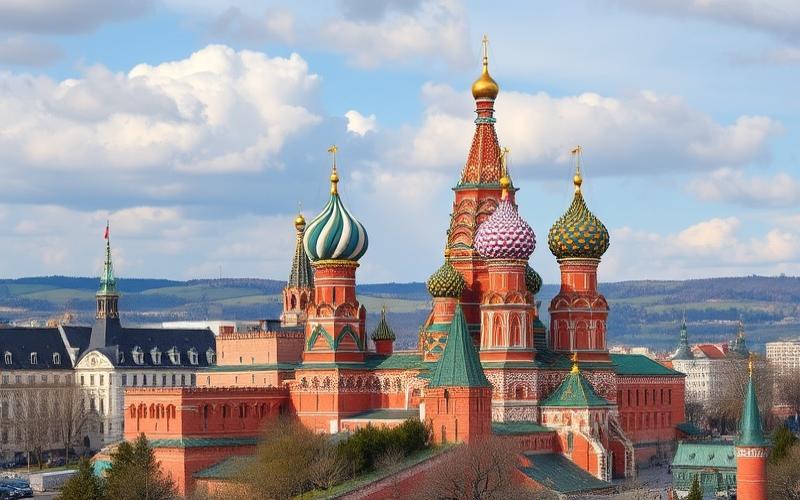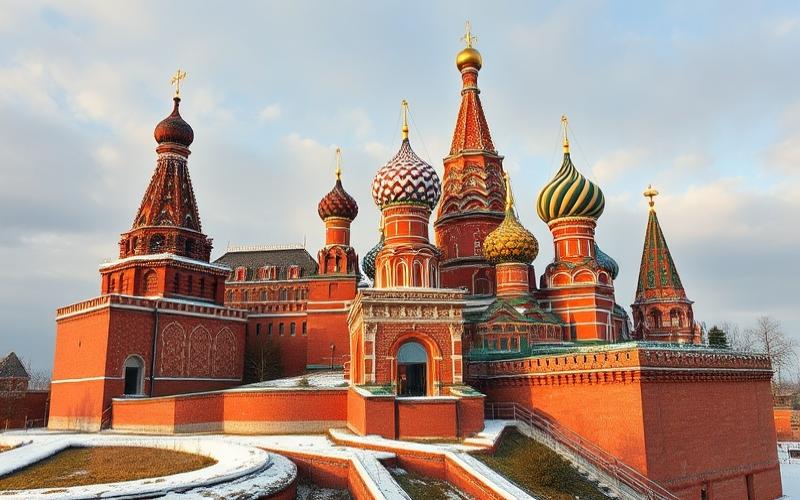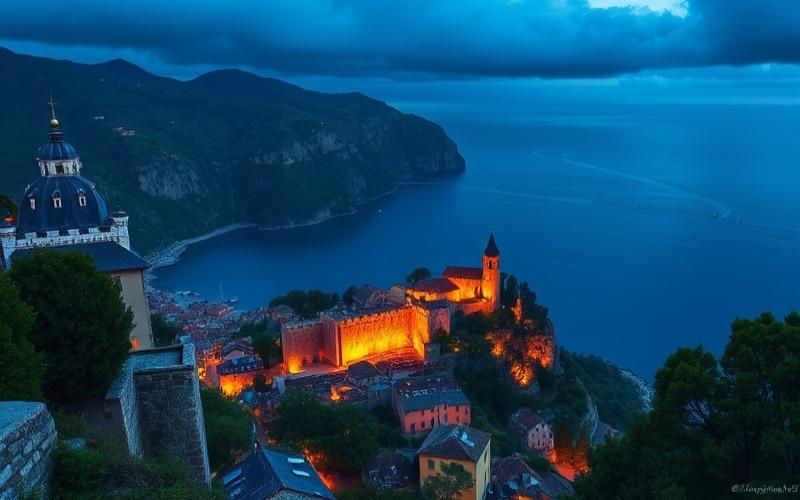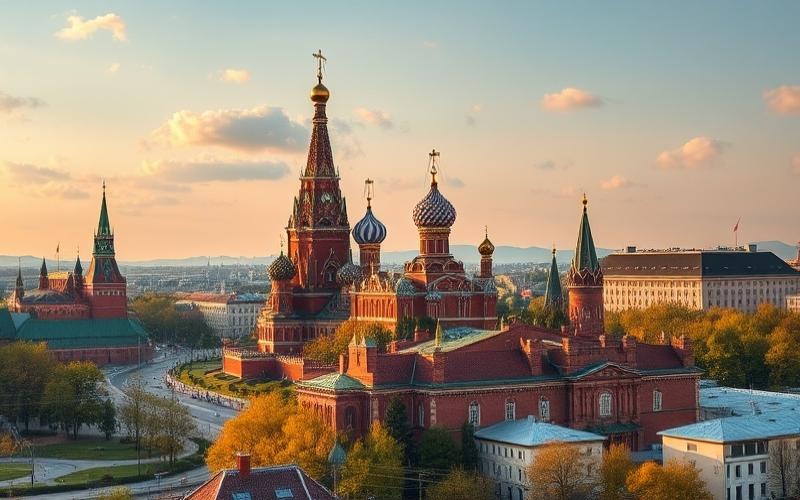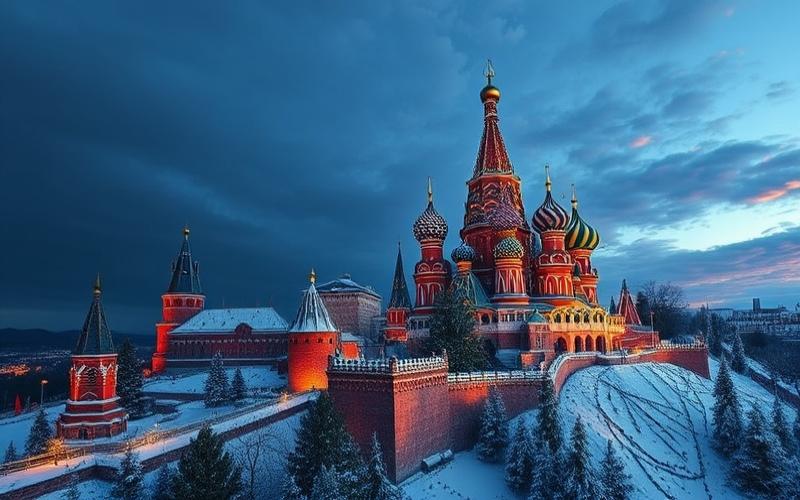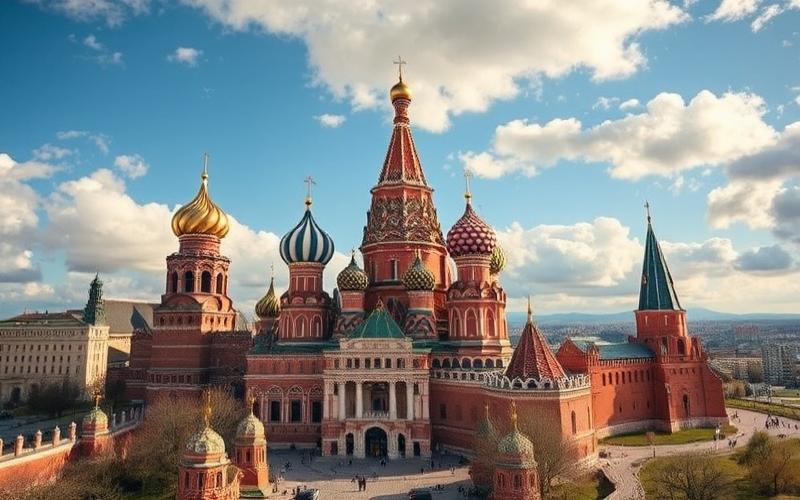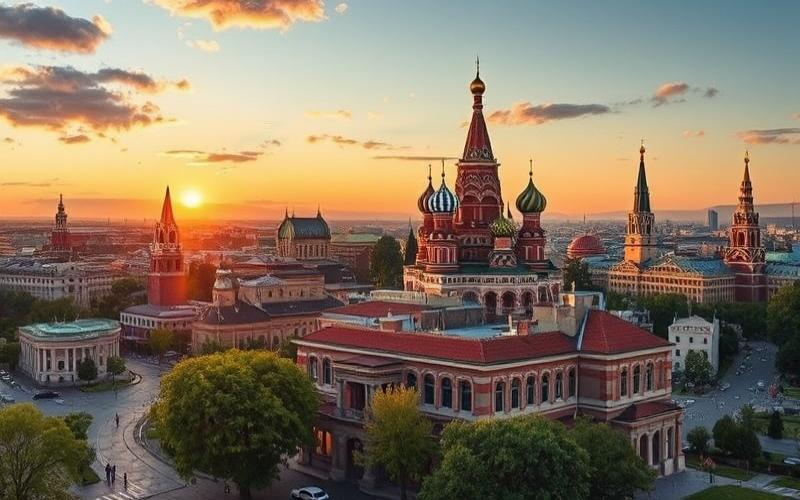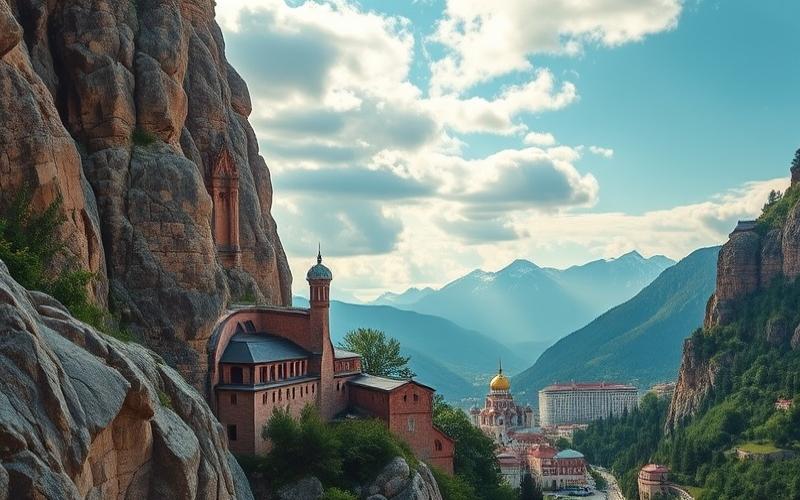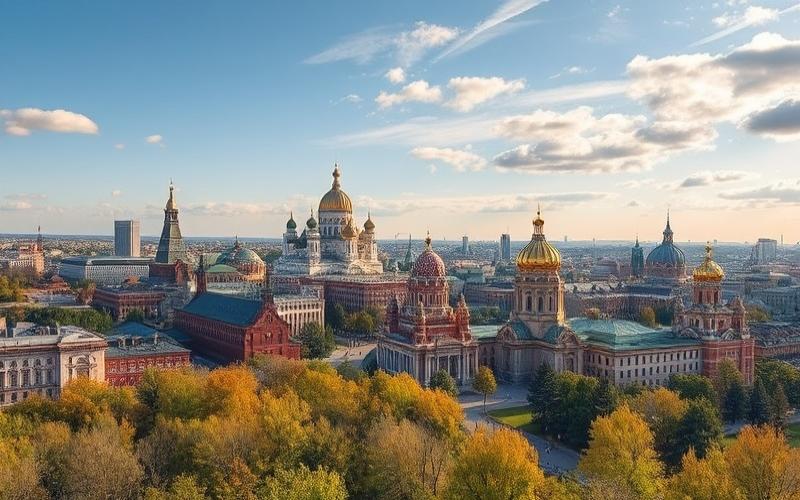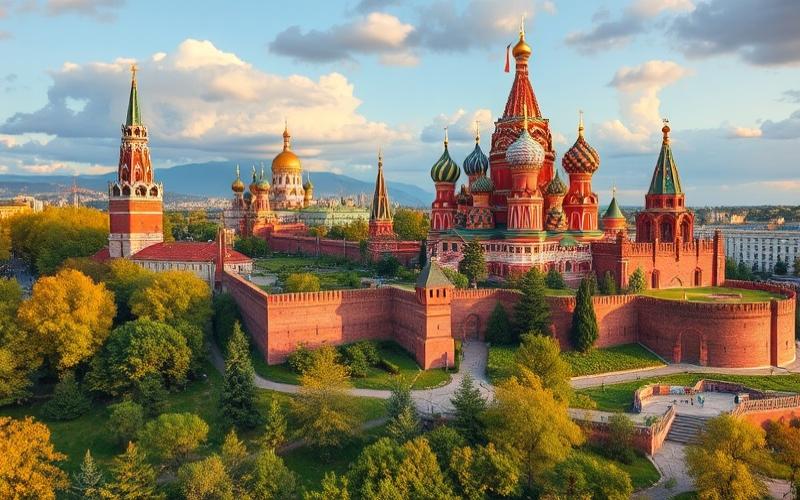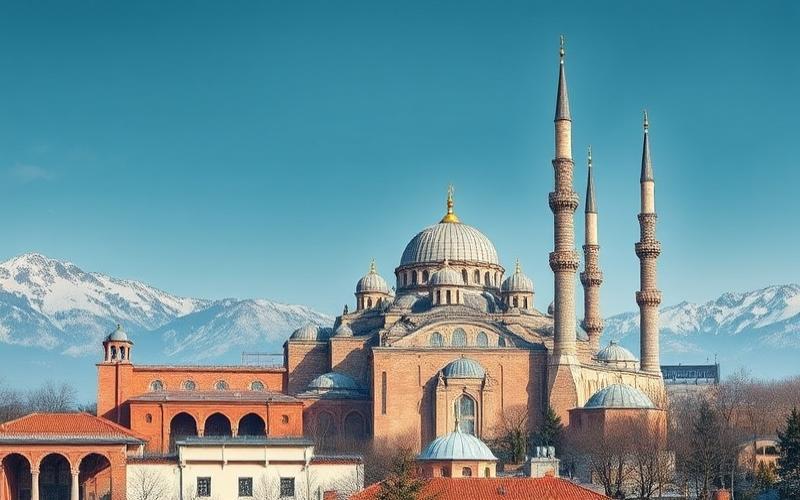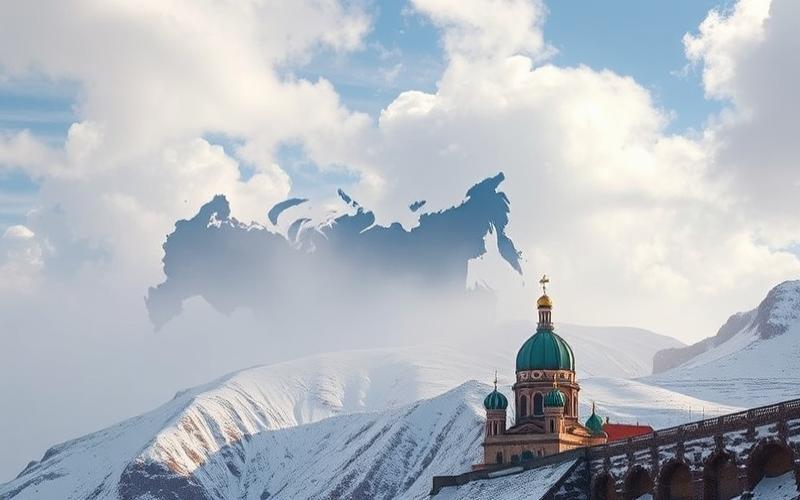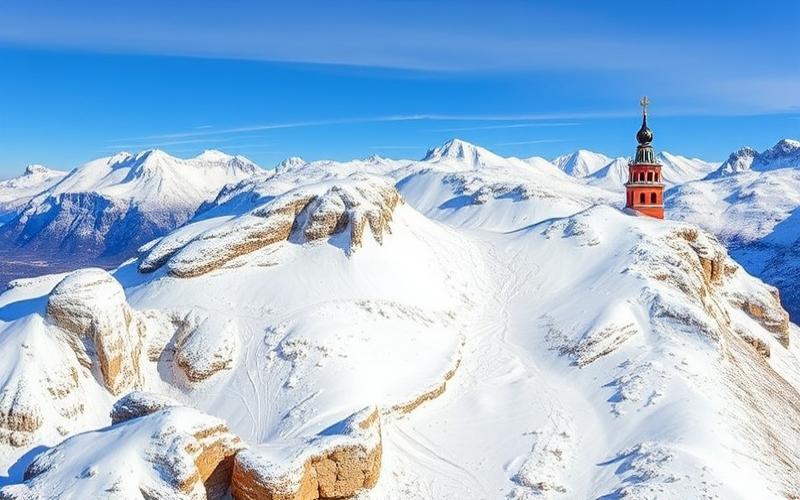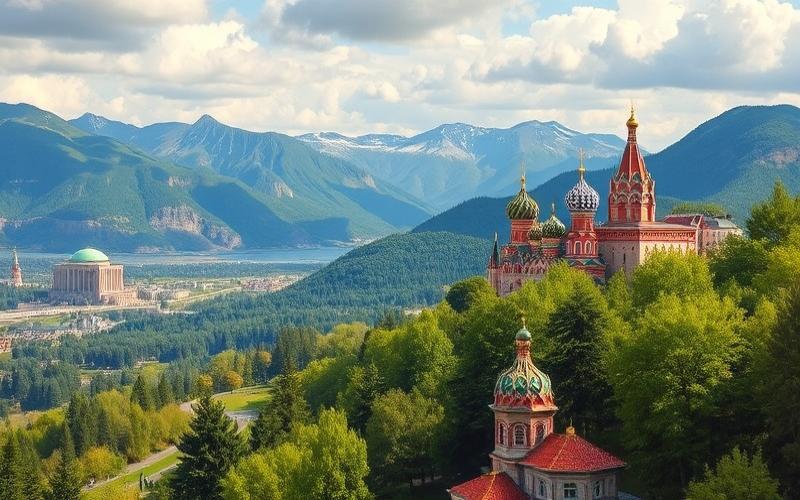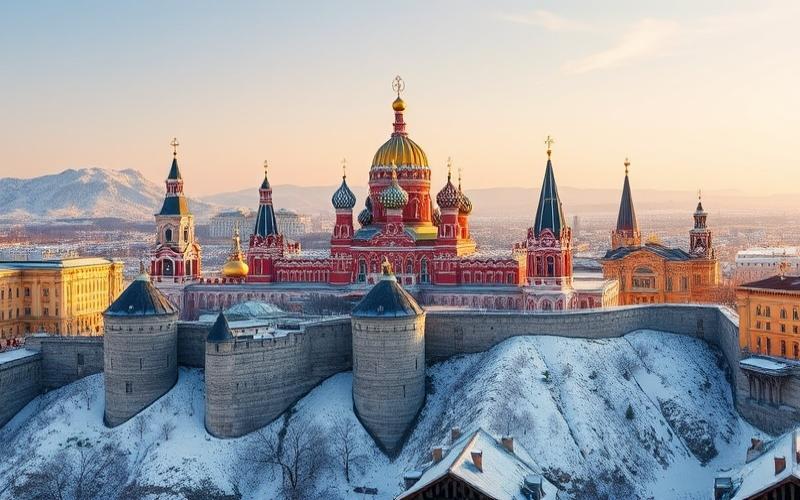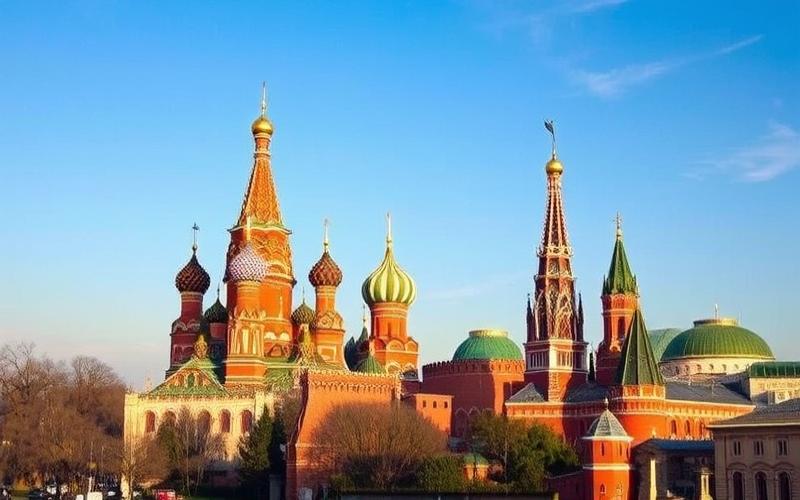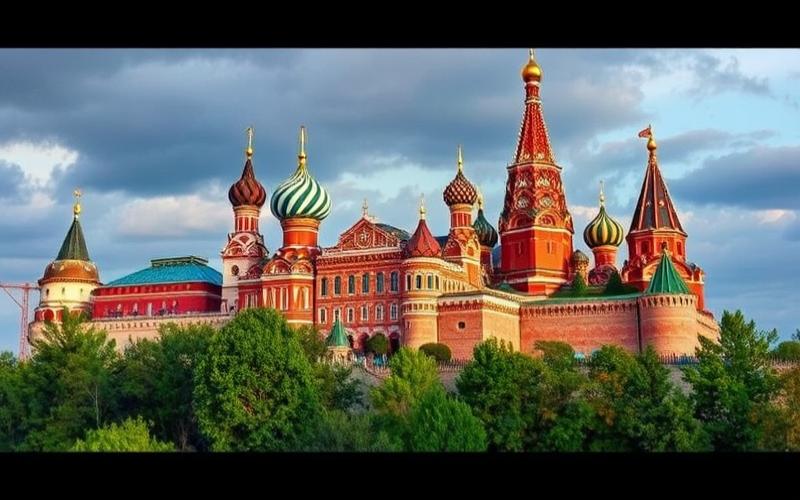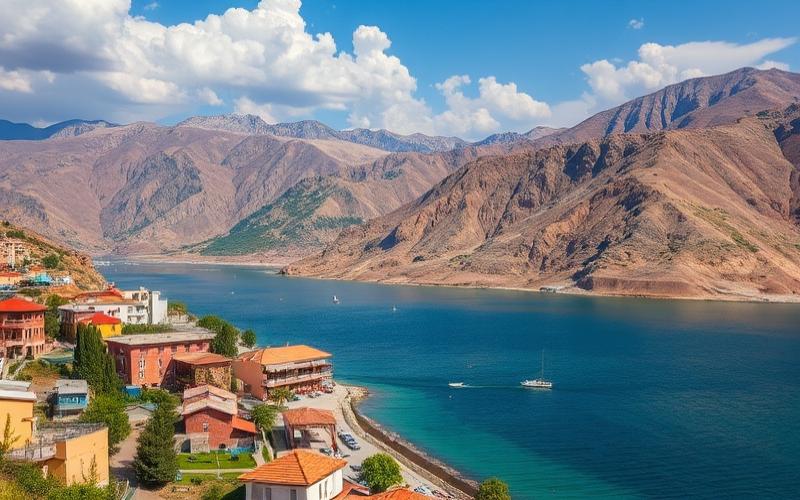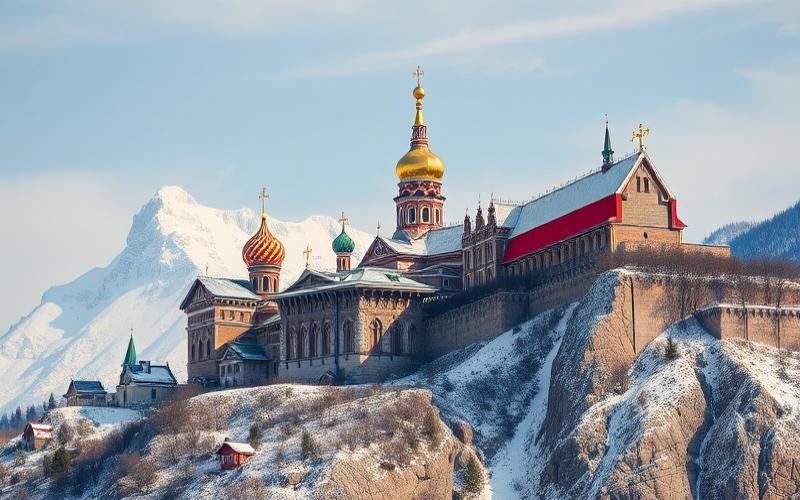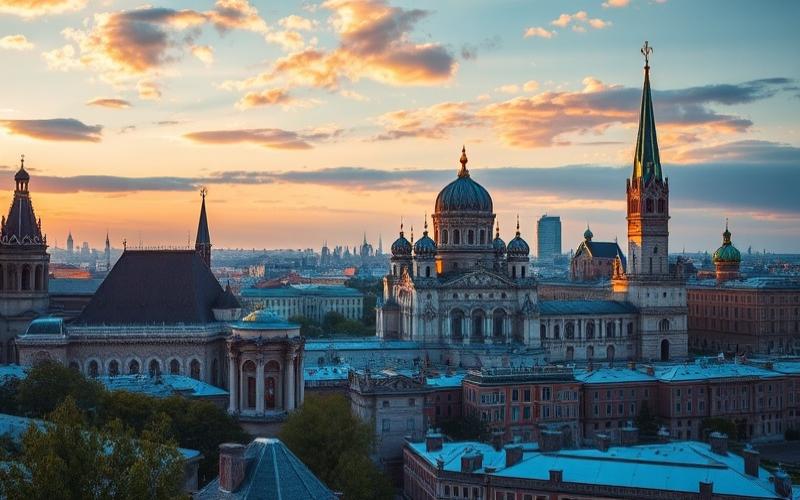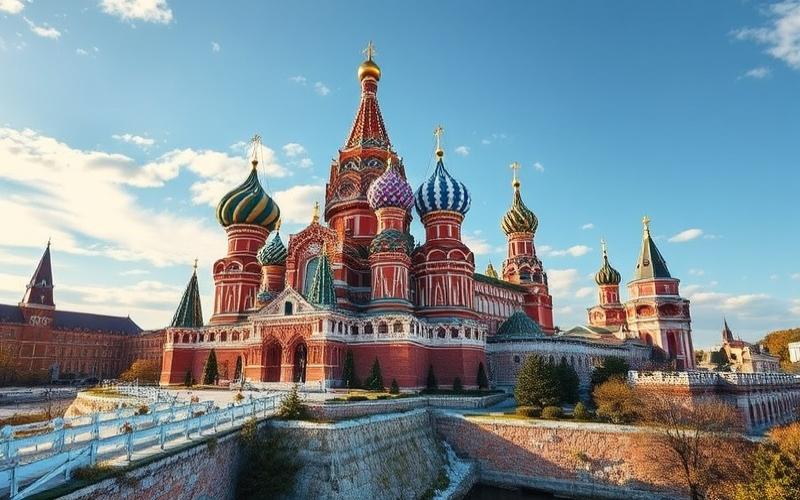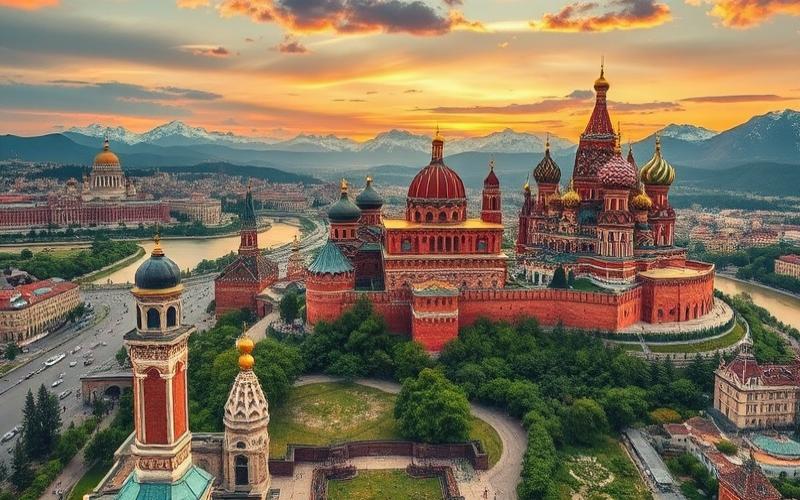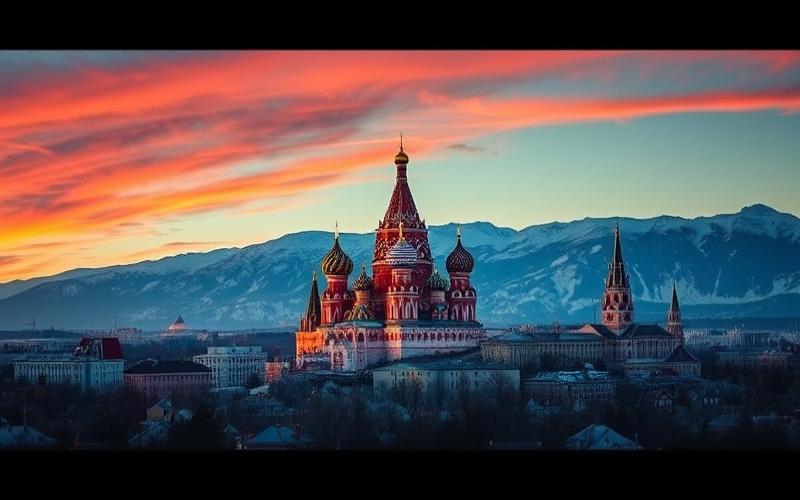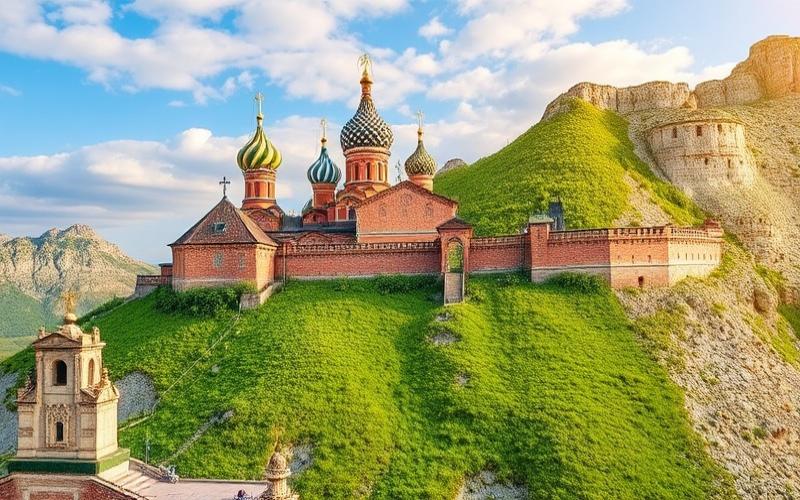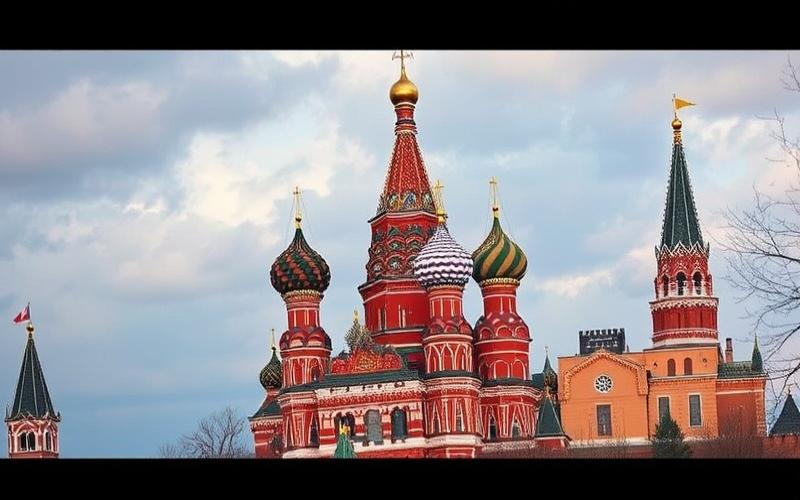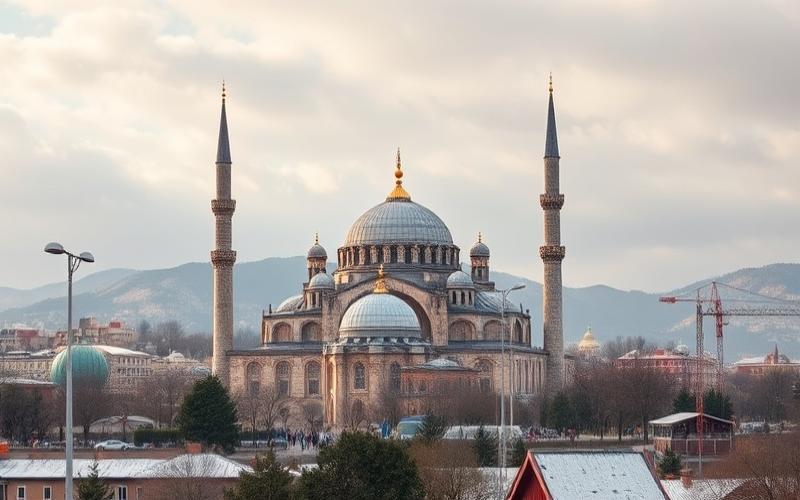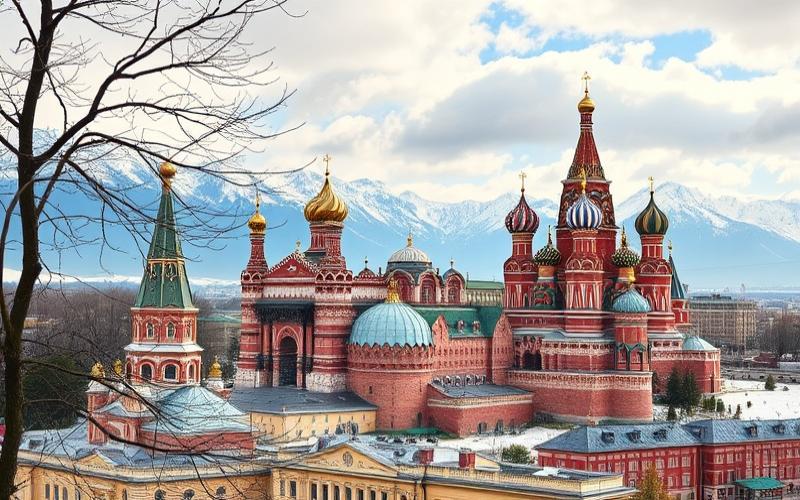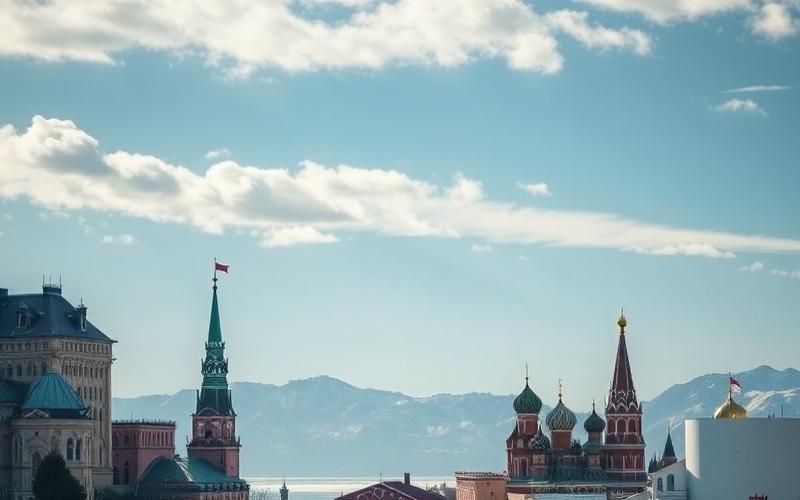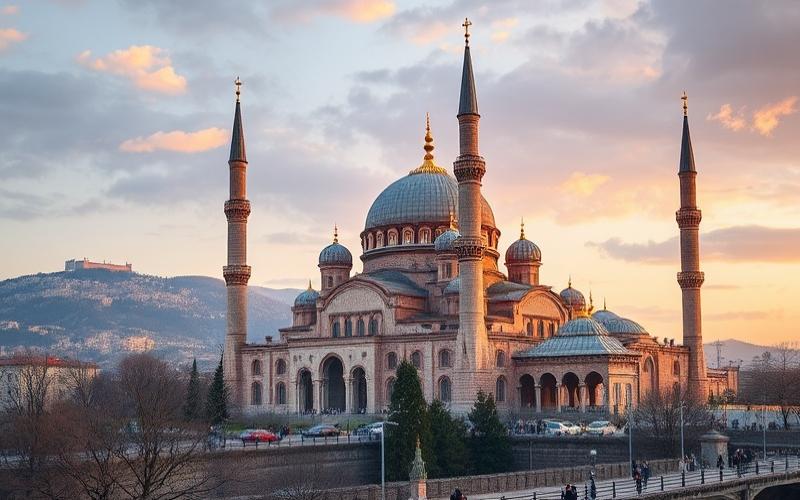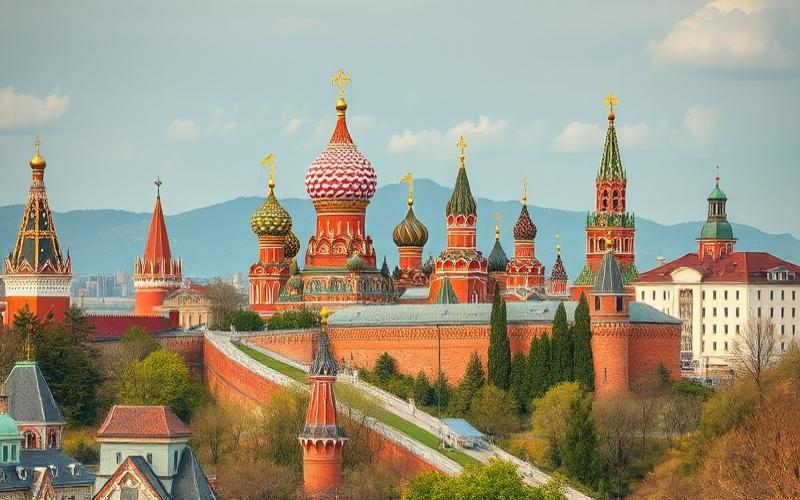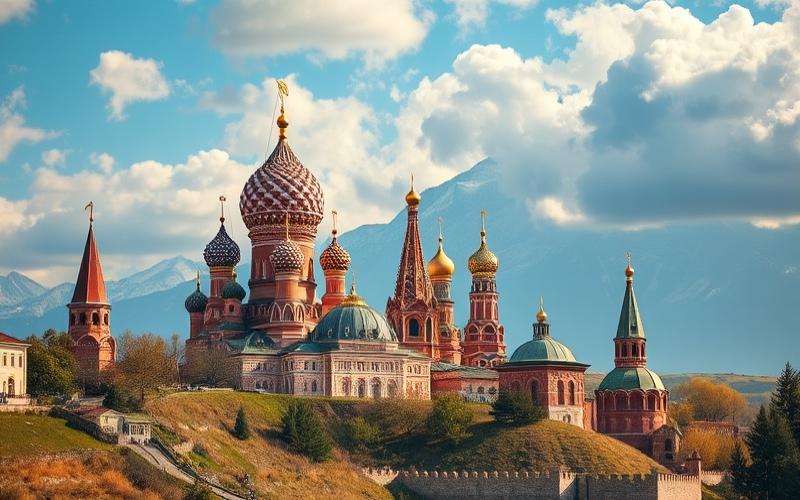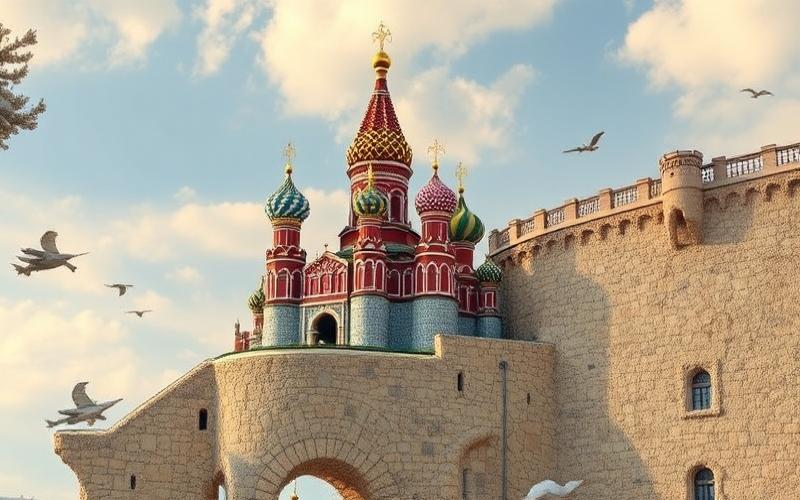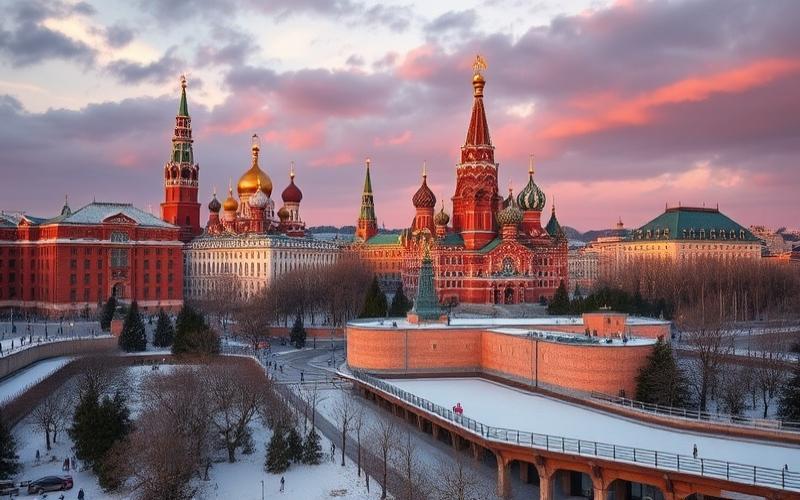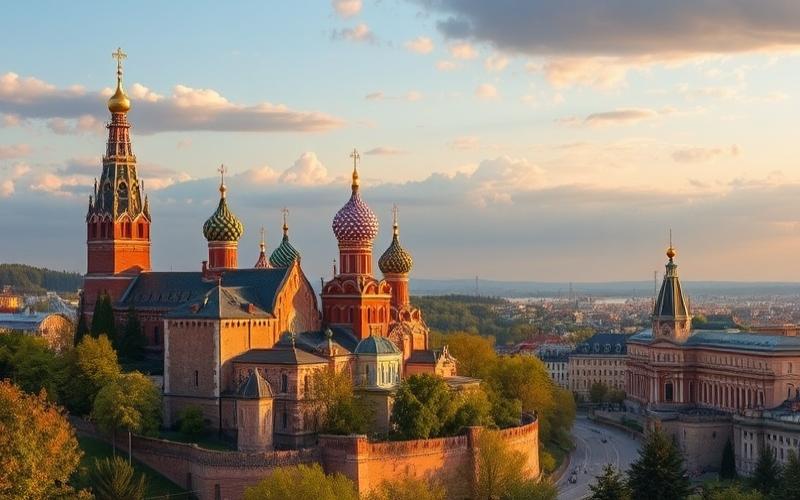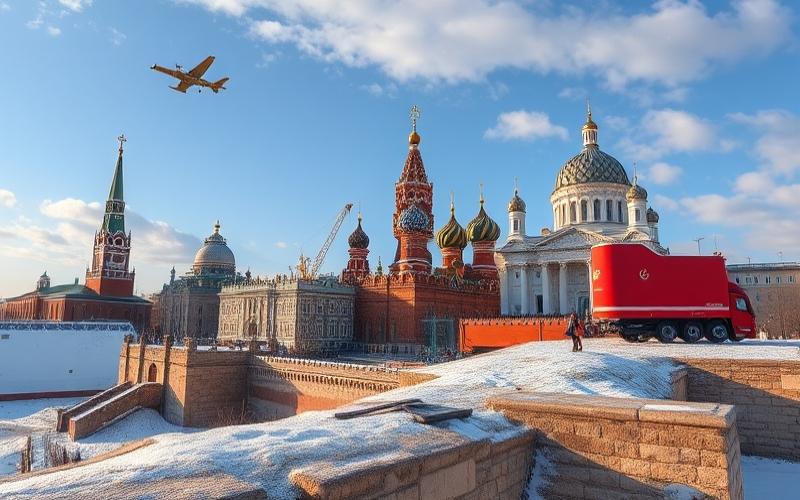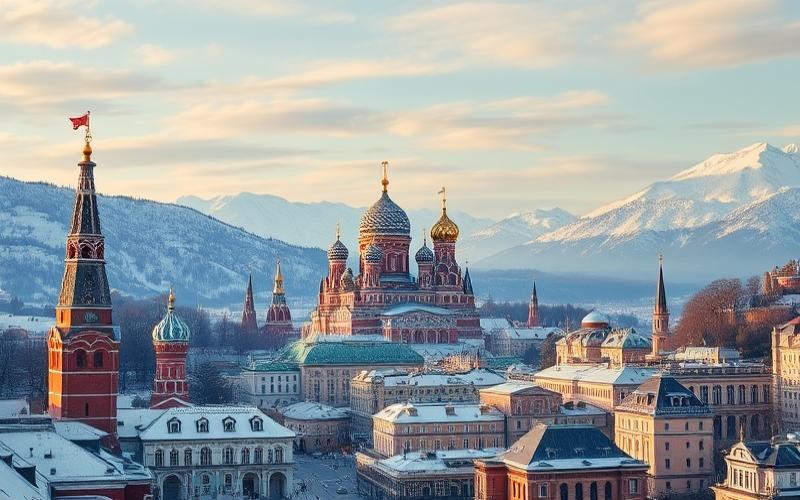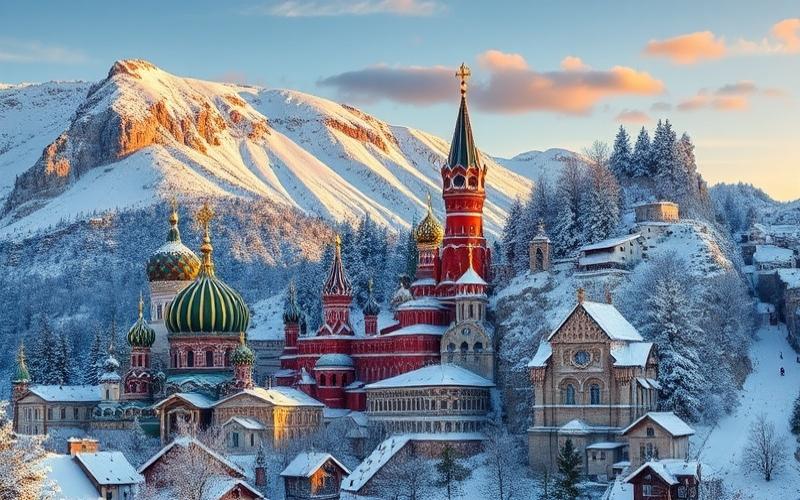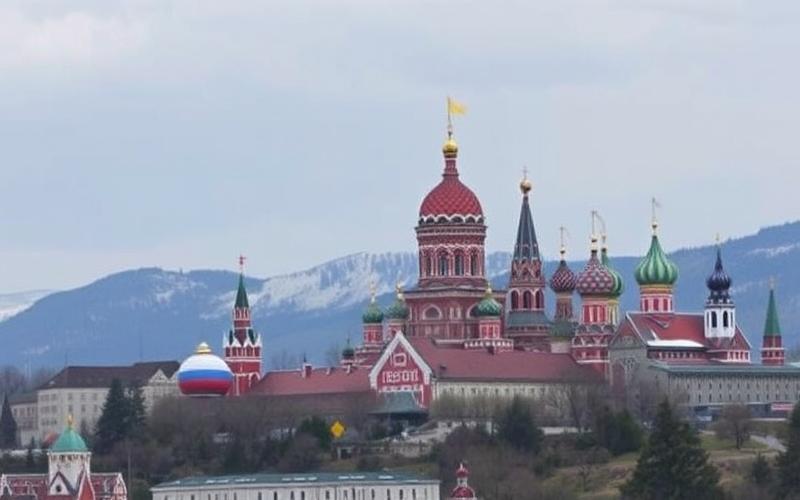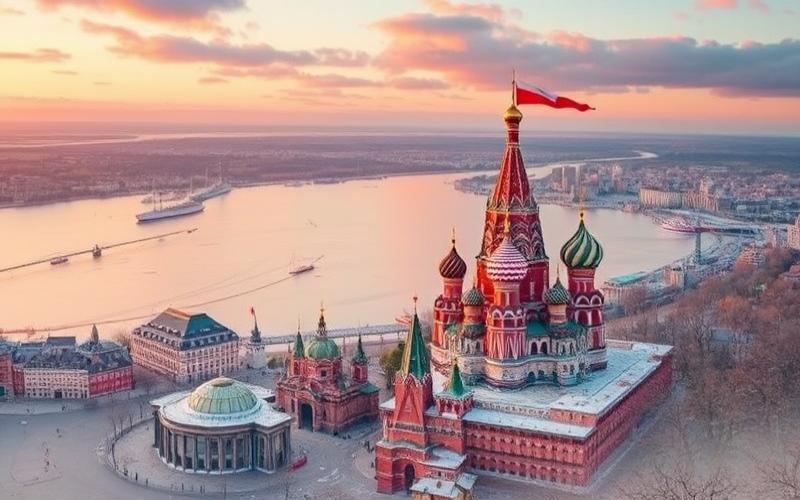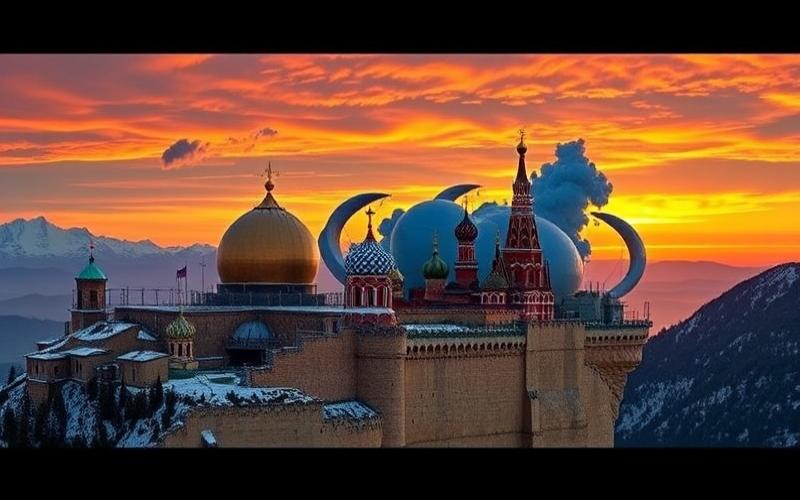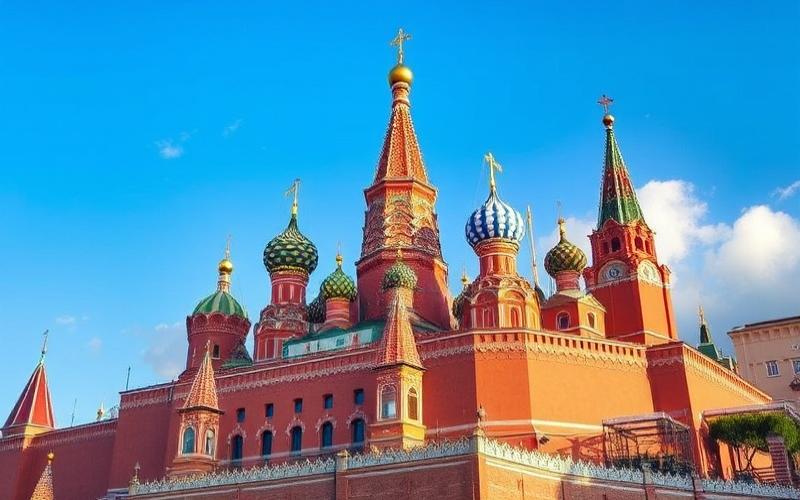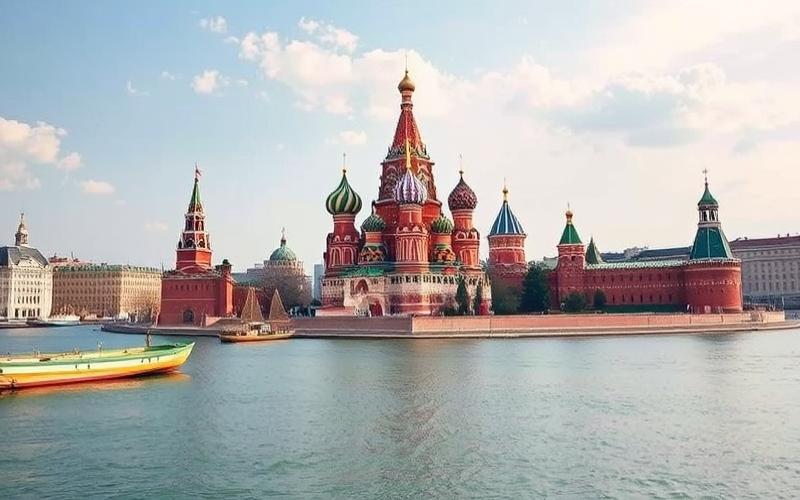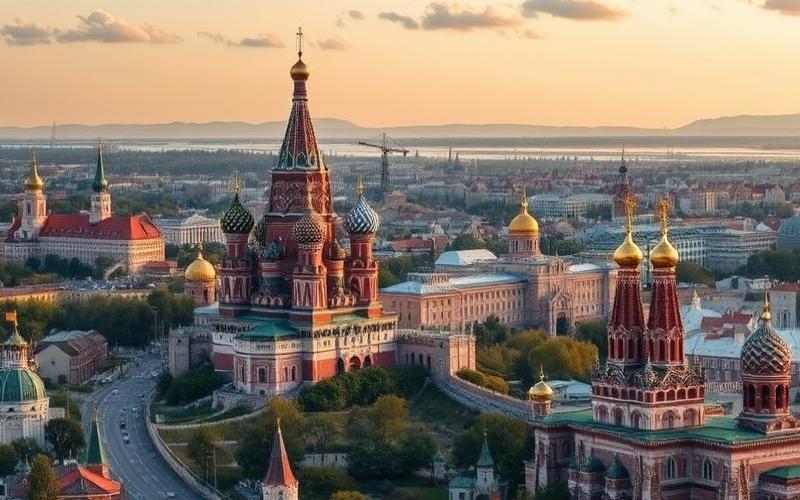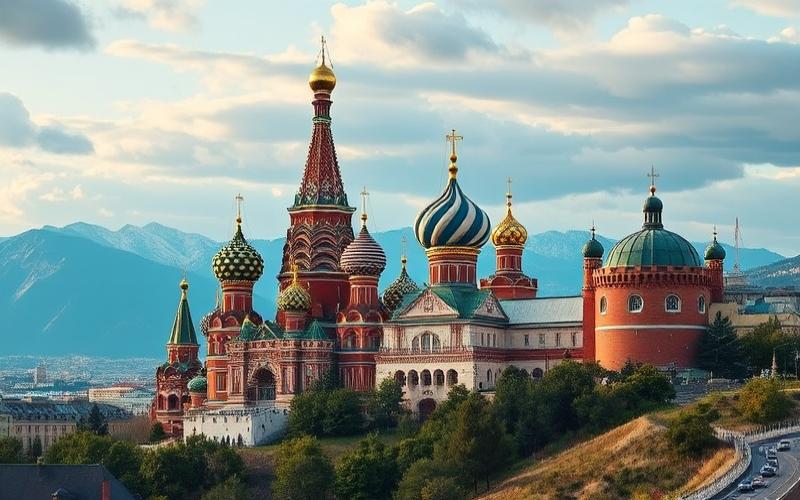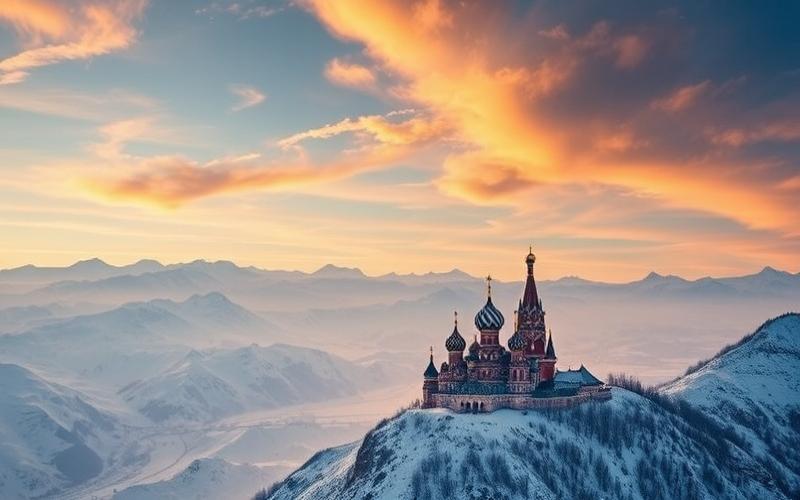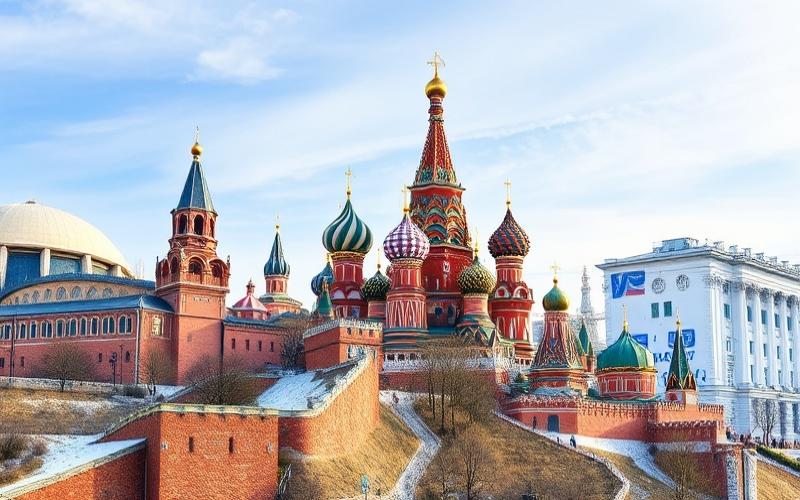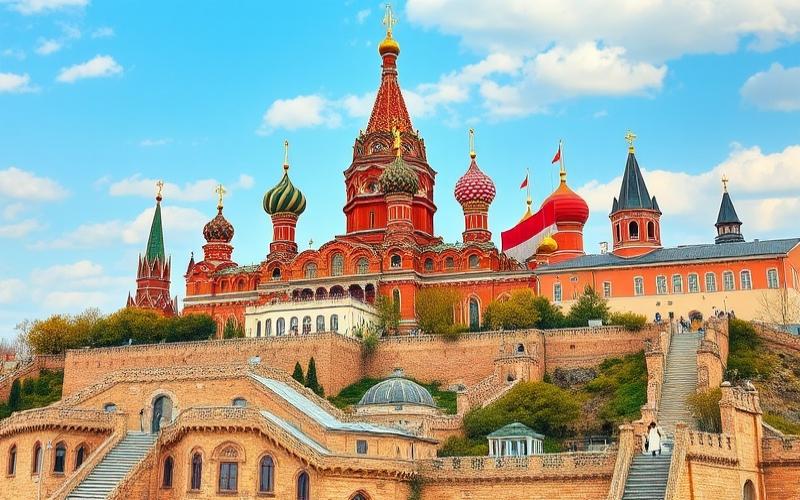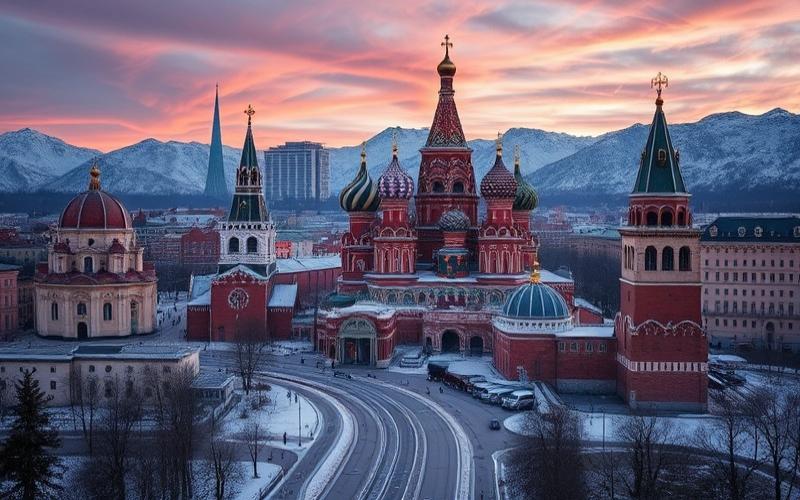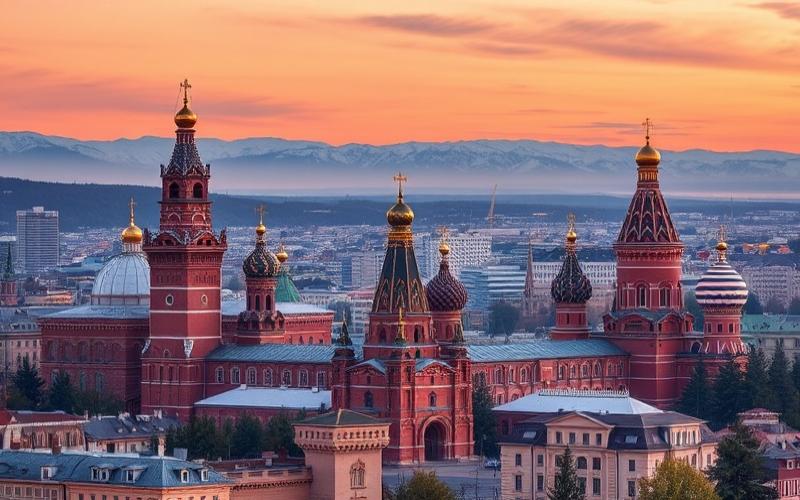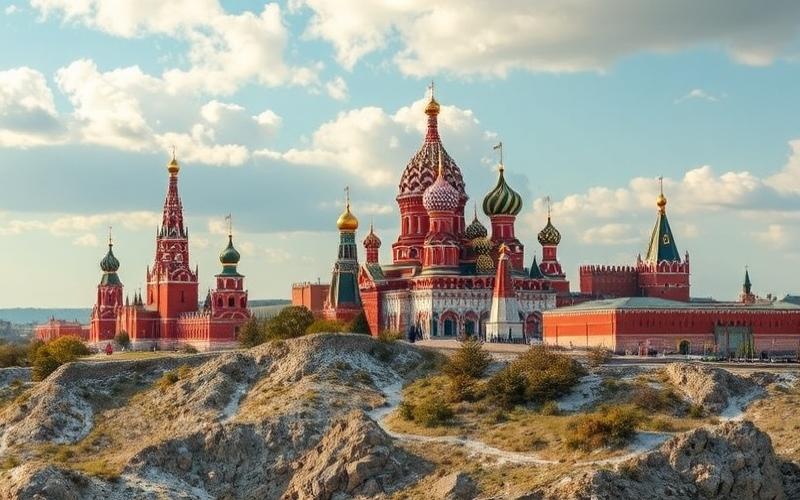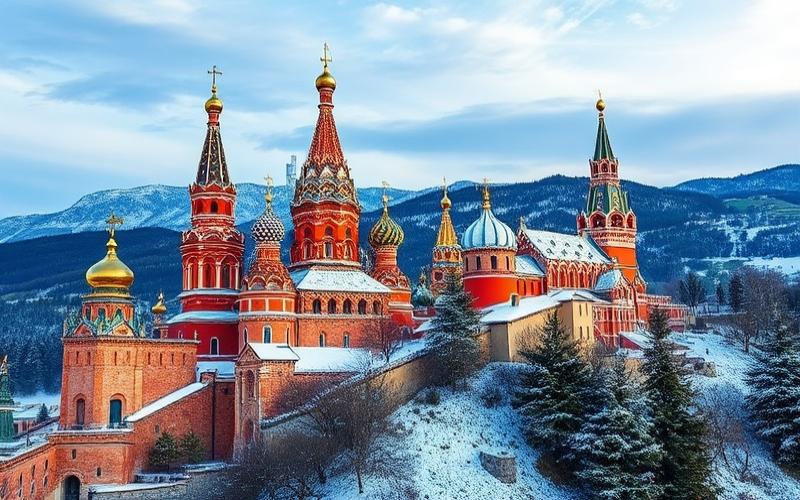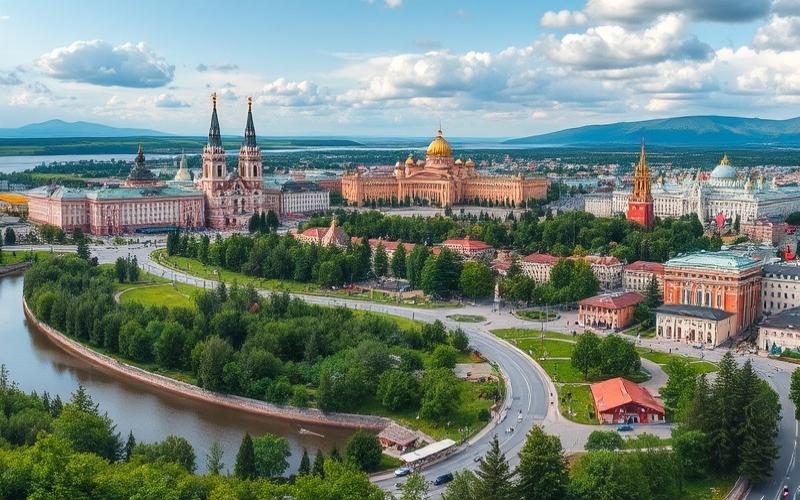
 Published on and written by Cyril Jarnias
Published on and written by Cyril Jarnias
Russia, a vast territory with diverse landscapes and varied climates, offers fertile ground for numerous sports that captivate both locals and visitors alike. Whether you’re drawn to the excitement of stadiums or seeking outdoor challenges, the country provides an impressive range of physical activities.
From ice hockey, the quintessential national sport, to alpine skiing in the majestic Caucasus Mountains, not forgetting soccer that brings enthusiastic crowds to the fields, each discipline embodies a facet of Russian culture.
With ever-growing popularity, even less traditional sports like yoga or paddle boarding on the country’s many lakes and rivers are attracting more and more enthusiasts.
Explore with us these sports that make Russia’s heart beat and discover those that could enhance your stay or daily life.
Most Popular Sports in Russia
Main Popular Sports in Russia:
- Soccer
- Ice hockey
- Artistic gymnastics
- Basketball
- Bandy (Russian hockey)
- Tennis
| Sport | Beginnings and Evolution in Russia | Major Events | Iconic Clubs/Athletes | Statistics and Public Interest |
|---|---|---|---|---|
| Soccer | Introduced in the late 19th century; strong development during the Soviet era. Clubs from Moscow and Saint Petersburg are historic. | 2018 World Cup, Russian Premier League | Spartak Moscow, Zenit Saint Petersburg, Lev Yashin, Andrey Arshavin | Over 3 million registered players; most watched sport on television |
| Ice Hockey | Officially appeared in 1946. Legacy of bandy. The USSR dominated the international scene. | KHL (Kontinental Hockey League), World Championships | CSKA Moscow, Ak Bars Kazan, Alexander Ovechkin, Vladislav Tretiak | 1.7 million players; 2nd most watched sport |
| Artistic Gymnastics | Strong tradition since the USSR; excellence in world and Olympic competitions. | World Championships, Olympic Games | Olga Korbut, Svetlana Khorkina, Aliya Mustafina | 400,000 registered athletes, high visibility during Olympics |
| Basketball | Major successes during the Soviet era and after. Renowned Moscow clubs. | EuroLeague, European Championships | CSKA Moscow, Andrei Kirilenko, Timofey Mozgov | 500,000 registered players, clubs performing well in Europe |
| Tennis | Strong progression since the 1990s; numerous international champions. | ATP/WTA Tournaments, Davis Cup | Maria Sharapova, Yevgeny Kafelnikov, Marat Safin | Popular individual sport, growing audience |
Major Sporting Events in Russia:
- KHL (Kontinental Hockey League): Main ice hockey league in Russia, considered the best in Europe and second in the world.
- Russian Premier League Soccer: Top division championship, followed by millions of viewers.
- 2018 FIFA World Cup: Event that strengthened Russia’s image as a soccer nation.
- Gymnastics Competitions: Russia regularly hosts major international championships and events.
Iconic Clubs and Athletes:
- Soccer: Spartak Moscow, Zenit Saint Petersburg, Lev Yashin (“The Black Spider,” considered the greatest goalkeeper in history), Andrey Arshavin.
- Ice Hockey: CSKA Moscow, Ak Bars Kazan, Alexander Ovechkin (international star), Vladislav Tretiak.
- Artistic Gymnastics: Olga Korbut (Soviet icon), Svetlana Khorkina, Aliya Mustafina.
- Basketball: CSKA Moscow, Andrei Kirilenko.
- Tennis: Maria Sharapova, Marat Safin, Yevgeny Kafelnikov.
Recent Statistics (Estimates):
- Soccer: approximately 3-4 million regular players; highest television viewership.
- Ice hockey: over 1.5 million players; record audiences during major matches.
- Artistic gymnastics: several hundred thousand practitioners, with peaks during major international competitions.
- Basketball and tennis: rapid growth, with marked interest among younger generations.
Cultural and Social Factors Explaining the Popularity of These Sports:
- Climate: Long winters favor ice sports (hockey, skating, bandy).
- Soviet Heritage: Tradition of sports training from a young age, policy promoting high-level sports.
- National Pride: International successes are symbols of excellence and unity for the population.
- Sports Infrastructure: Extensive network of clubs, stadiums, and sports complexes inherited from the USSR.
- Value of Discipline and Collective Achievement: Core values in Russian sports education.
- Media Access: Massive broadcast of matches and competitions on national channels, creating popular enthusiasm.
Sports in Russia are therefore a vector of national identity, a historical heritage, and a powerful factor of social cohesion.
Good to Know:
Soccer, with its iconic clubs like Spartak Moscow, and ice hockey, bolstered by the KHL, are the most popular sports in Russia, often influenced by a rich sports tradition and illustrious athletes like Evgeni Plushenko in artistic gymnastics. The popularity of these sports is fueled by cultural and social factors, where history and international successes stimulate public enthusiasm and participation.
Where and How to Play Sports in Russia
Sports Infrastructure in Russia:
- Stadiums: Present in all major cities (Luzhniki in Moscow, Gazprom Arena in Saint Petersburg), suitable for soccer, athletics, and major events.
- Fitness Centers: Networks of modern gyms and fitness clubs, often open 24/7 in metropolitan areas.
- Sports Clubs: Multiple clubs specialized in each discipline, from ice hockey to tennis, including gymnastics.
- Ice Rinks: Very widespread, especially in Moscow and major northern cities, for figure skating and hockey.
- Outdoor Facilities: Public sports fields, parks equipped for calisthenics, fitness trails, and bike paths.
Most Popular Sports and Practice Locations:
| Sport | Major Infrastructure | Key Cities/Regions |
|---|---|---|
| Ice Hockey | Ice rinks, indoor arenas | Moscow, Saint Petersburg, Kazan |
| Soccer | Stadiums, municipal fields | Moscow, Saint Petersburg, Rostov |
| Basketball | Gyms, school clubs | Moscow (CSKA), Yekaterinburg |
| Figure Skating | Ice rinks, specialized schools | Moscow, Sochi |
| Skiing | Mountain resorts, urban slopes | Sochi, Krasnoyarsk, Murmansk |
| Gymnastics | Gymnastics clubs, schools | Moscow, Novosibirsk |
| Tennis | Private clubs, municipal courts | Moscow, Sochi |
| Boxing, Wrestling | Gyms, specialized clubs | Moscow, Yekaterinburg |
| Athletics | Stadiums, urban tracks | Moscow, Kazan, Saint Petersburg |
Cities or Regions That Stand Out:
- Moscow: Center for figure skating, basketball (CSKA), major soccer stadiums, numerous multi-sport clubs.
- Sochi: Russian capital of winter sports (skiing, snowboarding, sliding sports), host of the 2014 Winter Olympics.
- Saint Petersburg: Strong in soccer (Zenit), hockey, modern infrastructure for various sports.
- Kazan: University city, state-of-the-art facilities, international competitions (Universiade, swimming, soccer).
- Yekaterinburg: Hub for women’s basketball and boxing.
Ideal Seasons or Periods for Practicing Certain Sports:
- Winter Sports (skiing, hockey, skating, biathlon): December to March, mainly in the north and mountainous regions.
- Soccer, Basketball, Athletics: May to October (summer season).
- Indoor Sports (gymnastics, boxing, weightlifting): Year-round, regardless of weather.
Sports Organizations and Associations:
- Russian Football Union (RFU)
- Russian Ice Hockey Federation (FHR)
- Russian Gymnastics Federation
- CSKA Moscow (historic multi-sport club)
- Spartak Moscow, Zenit Saint Petersburg (major clubs)
- KHL (Kontinental Hockey League, professional hockey league)
- VTB Kremlin Cup (tennis tournament organization)
Exercises to Do at Home or Outdoors:
- Calisthenics: Push-ups, pull-ups, squats, dips (very popular, especially in equipped parks).
- Floor Gymnastics: Abs, planks, bends.
- Running: Urban routes or parks.
- Yoga, Stretching: At home or in green spaces.
- Functional Training: Using body weight, resistance bands, light dumbbells.
Public Sports Events and Competitions:
- Urban Marathons (Moscow, Saint Petersburg, Sochi).
- Popular Races and half-marathons in many cities.
- Outdoor Skating Competitions on frozen lakes in winter.
- Amateur Soccer and Basketball Tournaments in neighborhoods.
- National Sports Days with free initiation in clubs and stadiums.
- Mass Sports Festivals (GTO – Ready for Labor and Defense, state physical activity program).
In Russia, sports practice is accessible to all, from modern infrastructure to public spaces, through a strong tradition of club sports and a culture of individual outdoor exercise.
Good to Know:
Sports infrastructure in Russia includes stadiums, fitness centers, and clubs like CSKA Moscow, while Moscow is ideal for figure skating and Sochi for winter sports; events like the Moscow Marathon encourage sports practice, and at home, yoga or HIIT are popular options.
Budget for a Sports Expatriate in Russia
The budget for a sports expatriate in Russia heavily depends on the city of residence, chosen standard of living, and the sports discipline practiced.
Monthly Cost of Living (Housing Included) in Major Russian Cities:
| City | Single Person | Family (4 people) | Comparison with France |
|---|---|---|---|
| Moscow | €1,400 | €2,400 | 36% cheaper |
| Saint Petersburg | €1,000–€1,297 | €2,000–€3,358 | 46% cheaper |
Common Expenses:
- Housing: Rent is the main expense, particularly high in Moscow.
- Food:
- Meal at an inexpensive restaurant: €8–€10
- Meal for two at a mid-range restaurant: €30–€40
- Monthly groceries (basic products): approximately €150–€250
- Transportation:
- Subway/bus ticket: €0.6 in Saint Petersburg (40% cheaper than in France)
- Monthly pass: €25–€30
- Taxi (1 km): €0.4–€0.6
- Gasoline: €0.5/L
Costs Related to Sports Practice:
- Club/Gym Membership:
- Monthly gym subscription: €25–€50
- Specific sports club (swimming, martial arts, etc.): €30–€100 depending on the discipline and club’s reputation
- Sports Equipment:
- Brand sports shoes: €50–€100
- Full outfit: €60–€120
- Specific equipment (racket, bike, etc.): often cheaper than in Western Europe, but imported brands cost more
- Competitions:
- Registration fees: €10–€50 for local competitions, up to €200 for international events
- Internal travel: generally affordable, but Russia’s large distances can increase transport budget for national competitions
International Comparisons:
| Expense Item | Russia (Moscow/SPB) | France | Germany | China | Japan |
|---|---|---|---|---|---|
| 2-Bedroom Rent Center | €800–€1,200 | €1,300–€1,700 | €1,200–€1,500 | €900–€1,200 | €1,600–€2,000 |
| Gym | €30–€50 | €40–€70 | €30–€60 | €20–€40 | €50–€100 |
| Restaurant Meal | €8–€10 | €15–€20 | €12–€18 | €4–€8 | €10–€15 |
| Monthly Transport | €25–€30 | €65–€75 | €80–€100 | €15–€25 | €60–€80 |
Unexpected Expenses:
- Healthcare: Mandatory medical insurance for expatriates, cost between €40–€100/month depending on coverage. Private consultations cost €20–€50, hospitalization more expensive.
- Visas: Annual visa fees about €50–€150, plus administrative process costs.
- Others: Housing deposit, bank exchange fees, possible legal fees.
Possible Assistance and Subsidies:
- Some professional or semi-professional sports clubs cover all or part of housing, health insurance, equipment, or travel expenses.
- Russian sports federations may provide occasional support for international athletes under contract, especially for registration in major competitions.
- Sports scholarships or government grants exist, but are mostly reserved for high-level athletes or those with recognized status.
- For Olympic or priority disciplines, possibility of free or reduced-cost access to infrastructure.
The cost of living in Moscow and Saint Petersburg remains lower than that of major European or Asian capitals, particularly for dining, transportation, and access to sports infrastructure. However, expenses related to healthcare, administrative procedures, and importing specific sports equipment can quickly increase a sports expatriate’s budget.
Main Tips:
- Compare health insurance offers and carefully verify coverage for sports accidents.
- Inquire about possible partnerships between local federations and foreign clubs.
- Plan an “unexpected expenses” budget of at least 10% of the total monthly budget.
Good to Know:
In Moscow and Saint Petersburg, sports expatriates must budget significantly for housing and food, while gym or club membership fees remain comparable to other European cities; it’s also wise to check for available assistance from local sports federations or the government.
Disclaimer: The information provided on this website is for informational purposes only and does not constitute financial, legal, or professional advice. We encourage you to consult qualified experts before making any investment, real estate, or expatriation decisions. Although we strive to maintain up-to-date and accurate information, we do not guarantee the completeness, accuracy, or timeliness of the proposed content. As investment and expatriation involve risks, we disclaim any liability for potential losses or damages arising from the use of this site. Your use of this site confirms your acceptance of these terms and your understanding of the associated risks.

